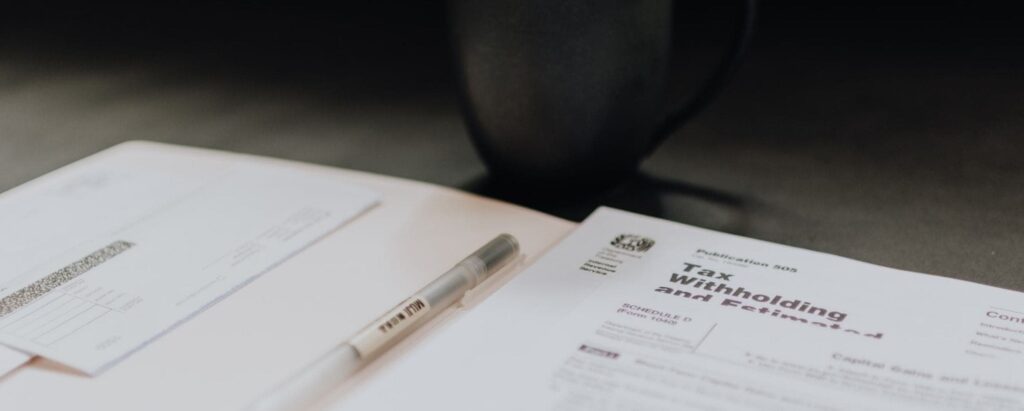Disclosure: This post may contain affiliate links. If you click on a link I may make a small commission at no extra cost to you. You can read the full disclosure here.
Last Updated on October 23, 2022 by Chris Panteli
Start a Bookkeeping Business
It’s common knowledge that accountants make a lot of money, but what about bookkeepers? Is this an equally good option for starting a side business? Are bookkeepers even different from accountants?
If you are good with numbers and have good organization skills, bookkeeping might be the perfect side gig for you.
Is bookkeeping a good business to start?
Most small business owners don’t have the time or inclination to invest in learning bookkeeping, which is why it’s a great business to start. There will always be demand for skilled bookkeepers, and with a range of services, you can make a very good living recording the finances for other businesses.
In this post, we’ll cover everything you need to know about how to start a bookkeeping business. From figuring out how much money you could make to the qualifications you need and how to get started, we’ll help you get your new business idea off the ground.
Looking for quick ways to make some extra cash? Here are 29 money-making ideas that can make you money this weekend.
- Start a Bookkeeping Business
- Why Try Bookkeeping?
- What Does A Bookkeeper Do On A Daily Basis?
- How Much Does A Bookkeeper Make?
- Types Of Bookkeeping
- Pros and Cons of Starting A Bookkeeping Business
- What You’ll Need To Start A Virtual Bookkeeping Business
- Bookkeeping Advertising
- How To Get Bookkeeping Clients Quickly
- Bookkeeping Business Name Ideas
- How To Keep Books For A Small Business
- The Best Bookkeeping Blogs
- Is Bookkeeping The Right Business For You?
- Bookkeeping Business
Why Try Bookkeeping?

The first question we need to ask is, is there a demand for bookkeepers?
In the United States, there are around 1.7 million bookkeepers, and the job market is actually expected to shrink by about 1.5% by 2026.
This is primarily due to bookkeeping software and automated tools making it easier for small businesses to operate without a dedicated bookkeeper.
Having said that, there will always be a call for skilled bookkeepers because it’s a skill that not all businesspeople possess.
Not to mention, the fact that there will be fewer jobs in the coming years means positions will be higher-paying, which is a good thing for bookkeepers.
Finally, Be Your Own Boss
Take the FREE workshop from Bookkeepers.com and find out exactly how you can start your very own Digital Bookkeeping Business

Accountant VS Bookkeeper
Although the work of bookkeepers and accountants often overlaps, there are different positions.
A bookkeeper records and classifies all of the financial transactions of a company, including sales, payroll, bills, etc.
An accountant takes all that information and offers financial reviews, interpretations, and advice on the best way to enhance the bottom line of the business.
Think of it as a partnership – the bookkeeper records all the data, and the accountant interprets it in a financial statement.
Certified Bookkeeper Vs Certified Public Bookkeeper
A Certified Public Bookkeeper license is an accreditation given by the National Association of Certified Public Bookkeepers (NACPB). This premier accreditation is recognized throughout the states and provides assurance that your bookkeeping services are good.
Although you don’t need the CPB license to be a bookkeeper in the US, it shows your prospective clients that you are experienced, skilled, and trusted to be in charge of their record keeping.
What Does A Bookkeeper Do On A Daily Basis?

The day-to-day operations of a bookkeeper center around tracking and recording the financial incomings and outgoings of a client’s business.
Keeping Track Of Daily Transactions
You’ll handle the recording and tracking of day-to-day transactions. Most bookkeepers use software for this to make their job easier. Having clients set up on bookkeeping software makes it easier for them to keep track of invoices and payments, and makes your life easier when it comes to taxes.
Sending Out Invoices
Preparing invoices and sending them out to clients is also the responsibility of the bookkeeper. You’ll be in charge of managing the accounts receivable ledger and chasing any late payments.
Handling The Accounts Payable Ledger
Bookkeepers are also usually responsible for making payments on behalf of the business. This will include creating invoices for suppliers, paying expenses, and handling petty cash.
Preparing The Books For The Accountant
You’ll also spend time making sure all books are complete and up to date ready to be handed over to the accountant.
Overall, the day of an accountant can be busy. Without a talented bookkeeper keeping track of finances, accountants can’t do their jobs, and businesses won’t know if they’re in profit.
How Much Does A Bookkeeper Make?
The average bookkeeper salary in the United States is $44,931, but this ranges from around $30,000 to $50,000, depending on experience, qualifications, hours, and the level of service provided.
As a freelance bookkeeper, you can expect to charge anywhere from $18 to $23 as an hourly rate for your services. However, most freelancers work on a monthly retainer basis, with fees starting at $99 a month for basic bookkeeping services.
Types Of Bookkeeping

There are three general types of bookkeeping you can offer when you start out:
Virtual Bookkeeping Business
As a virtual bookkeeper, you’ll accept invoices, receipts, and payroll ledgers electronically and work remotely. You’ll typically work over email with clients, and keep track of records using dedicated online software.
Finally, Be Your Own Boss
Take the FREE workshop from Bookkeepers.com and find out exactly how you can start your very own Digital Bookkeeping Business

Virtual bookkeepers are just as qualified as their in-house counterparts, they just work from home. Most virtual bookkeepers work for one company as full-time employees, which is where they differ from freelance bookkeepers.
Freelance Bookkeeping
As a freelance bookkeeper, you’ll offer a range of services to different businesses as and when they need them. Rather than working full-time for one company, you’ll have several under your belt and may offer one-off services, too.
The services are the same, and the jobs are usually virtual, giving you the option of working remotely as a digital nomad.
Full Cycle Bookkeeping
Full cycle bookkeeping is the process of following a business through the full tax year, keeping all records, and then preparing records for the accountant to submit for taxes. You’ll stick with a business as a full cycle bookkeeper for as long as they’re in business usually, and usually work on-site in an office.
Pros and Cons of Starting A Bookkeeping Business
There are some disadvantages and advantages of starting a virtual bookkeeping business that are key to consider before you make any investment in this as a career or side hustle.
The Pros of Starting A Bookkeeping Business
- The start-up costs are minimal.
- It’s easy to specialize in one sector and get clients quickly.
- Work is consistent and works on a schedule that’s easy to plan around.
- You can work virtually and from home.
- You don’t need any certification or training to get started (although it is recommended).
The Cons Of Starting A Bookkeeping Business
- You could be held liable if you make a recording error that costs a company money.
- You’re responsible for the security of any data you’re in charge of.
- Accounting software can be expensive to update and purchase.
- You need to be comfortable with technology.
What You’ll Need To Start A Virtual Bookkeeping Business

Just like any new business, there are some basics you’ll need to get off the ground.
- Qualification
Although you don’t need formal training to be a bookkeeper, if you’re serious about making this a successful business, you should think about getting a bookkeeping qualification.
This will make it much easier to get clients since it will lend credibility to your business at the beginning.
There are different courses and training you can take depending on your state, so look up local courses to see if there are any low-cost ones you can sign up for to get started.
- Start-up funds
Starting a bookkeeping business is one of the least expensive ones to start. And, according to Entrepreneur Magazine, one of the most profitable.
You’ll need around $1,000 for startup costs which will pay for a DIY website, accounting software, advertising, and basic supplies like stationery and business cards.
- A business plan
No matter how prepared you feel, you should always write up a business plan before you jump into finding clients. This will include:
- What software you plan on using.
- What industry you plan on targeting.
- Market research of clients, competition, and local opportunities.
- Your pricing structure and business running costs.
- A marketing strategy.
- Hardware
You’ll need a reliable, modern laptop or desktop computer to use day-to-day. Most bookkeeping software runs on both Mac and PC, so that’s just a personal preference.
But if you’re planning on working while you travel, you’ll probably prefer a quality laptop over a desktop.
A large screen is best since you’ll be spending most of your day staring at it.
- A website
Starting a bookkeeping business is all about building credibility so those first few clients trust you enough to handle their books.
You don’t need to invest thousands in a web design company, but a simple, easy-to-navigate website will make a big difference.
Tools like Squarespace cost around $20 a month and let you build a DIY website quickly and easily using templates – that’s all you need at the beginning.
You’ll also need a professional email address: hello@yourbusinessname.com rather than yourname@gmail.com – this will give a more professional look.
You can get a business email from G Suite for around $8 a month.
Start Your Own Blog
It’s a great way to make money online and to win back your financial freedom. It’s not easy, but then again, nothing good in life is! If you put in the work it can be extremely rewarding. So make sure you start your blog the right way, self-hosted, and on Siteground!

- Bookkeeping service software
This is going to be your most expensive outlay in the beginning. As a bookkeeper, you need quality, professional software to keep your clients’ books in order. Some of the best options are:
All of these offer free training videos to help you get to grips with the different tools if you’re not already familiar.
- Video conferencing software
As a freelance bookkeeper, you’ll spend a lot of time in meetings with your clients. Having a good quality video conferencing software in place will make meetings easier and avoid wasting time trying to get laggy streams working.
Some of the best options are:
Bookkeeping Advertising
There is a lot of competition out there when starting a bookkeeping business, so you’ll need to focus your energy on advertising when you get started.
Here are some promotional ideas to get started with:
- Reach out to local businesses you’d like to work with and give an introductory offer.
- Set up a low-cost, locally-targeted Facebook ad.
- Join online forums and offer your bookkeeping knowledge.
- Find online directories to get added to.
- Get published as a guest on high-profile blogs.
- Consistently post to business social media accounts (especially LinkedIn).
- Ask friends and family if they know anyone they can refer to you.
Once you’ve secured your first client, ask for referrals. People in business often have contacts and will be happy to recommend quality services.
How To Get Bookkeeping Clients Quickly

If you’re struggling to secure your first clients, don’t give up. Getting those first few clients is always the toughest. Here are some strategies you can use to get those first clients.
Choose A Niche To Specialize In
Business owners will be looking for bookkeepers who specialize in their industry. This is because each industry has slightly different needs with regards to invoicing, payroll, receipts, etc.
If you specialize in a specific niche, you can market much more directly and will find it easier to get referrals.
Offer Free 60-Minute Consultations
Investing in a new bookkeeper is a big decision, and trusting someone with your finances can be a risk. By offering a free consultation, you can build rapport with your potential clients and sell yourself much more effectively.
Have a specific day set aside for consultations, and encourage clients to schedule a call with you so you can explain to them exactly how you’ll improve their bookkeeping processes.
Sign Up For Freelancer Websites
Freelancer websites get a bad rep, but there are some great opportunities to find clients on these platforms.
They are usually free to set up, and you can choose which jobs you want to apply for. Although you shouldn’t rely on these sites forever since they charge fees, they can help you find your first clients:
Bookkeeping Business Name Ideas
If you’re struggling to come up with a business name, you’re not alone. Many people get stuck trying to think of the perfect name for their new venture.
Try to include “bookkeeping” in the name so potential clients immediately know what you offer. This will also help with your SEO when people are looking for local bookkeepers.
Your name is always a good option to give a professional, unique business name. For example, “Kelly Smith Bookkeeping”.
You could also include the industry you want to target, such as “Smith Contractors Bookkeeping”.
Don’t get too caught up in the name though – there’s always the option of changing it in the future as you grow.
How To Keep Books For A Small Business

Each business is slightly different with unique processes, but there are three sets of records you’ll always keep for small businesses:
- Cashbook: The cashbook is a record of payments in and out of a business’s account. This is an important forecasting tool that an accountant will need up to date.
- Sales invoice file: This is a record of all the invoices sent out to clients. You’ll use this to keep track of overdue invoices and chase late payments, so it should be in chronological order.
- Purchase invoice file: This file keeps track of business expenses, receipts, etc. You’ll need to keep track of what was spent and on what. The accountant will use this to write off taxes, so it’s an important file.
What Is Year-End Accounting?
Most small businesses will work on year-end accounting, which ensures all financial transactions are up-to-date and properly recorded for that tax year. The accounting is then performed to balance and books are closed on a 12-month cycle.
As a bookkeeper, you’ll keep monthly records and pass them over to the accountant for a financial review usually every quarter, six months, or year during the tax season.
The Best Bookkeeping Blogs
If you want to learn more about the specifics of bookkeeping, there are some great online resources to get more information. Some of the best ones include:
- e-News subscriptions (IRS.gov)
- Journal of Accountancy
- The QuickBooks Blog
- Insightly Accountant
- Xero Blog
Keeping on top of the latest financial and bookkeeping information will also help you improve your business and services once you get clients, so make an effort to read up regularly.
Is Bookkeeping The Right Business For You?
Hopefully, this guide has given you the basics of how to start a bookkeeping business. It can be a lucrative career for those with a keen eye for numbers and diligence with record-keeping.
Many business owners dread the idea of keeping track of the finances, which means it will always be a well-paying service and in demand.
Plus, with minimal investment to get started, it’s easy to jump in and test out if it’s right for you. With freelance sites, finding those first clients is quick and easy, and you can quickly build up your new business organically.
If you love the idea of setting up a freelance business but bookkeeping isn’t the right fit, have you thought about starting a notary signing business? Check out our guide to see if this is a better fit for you – you might be surprised.







